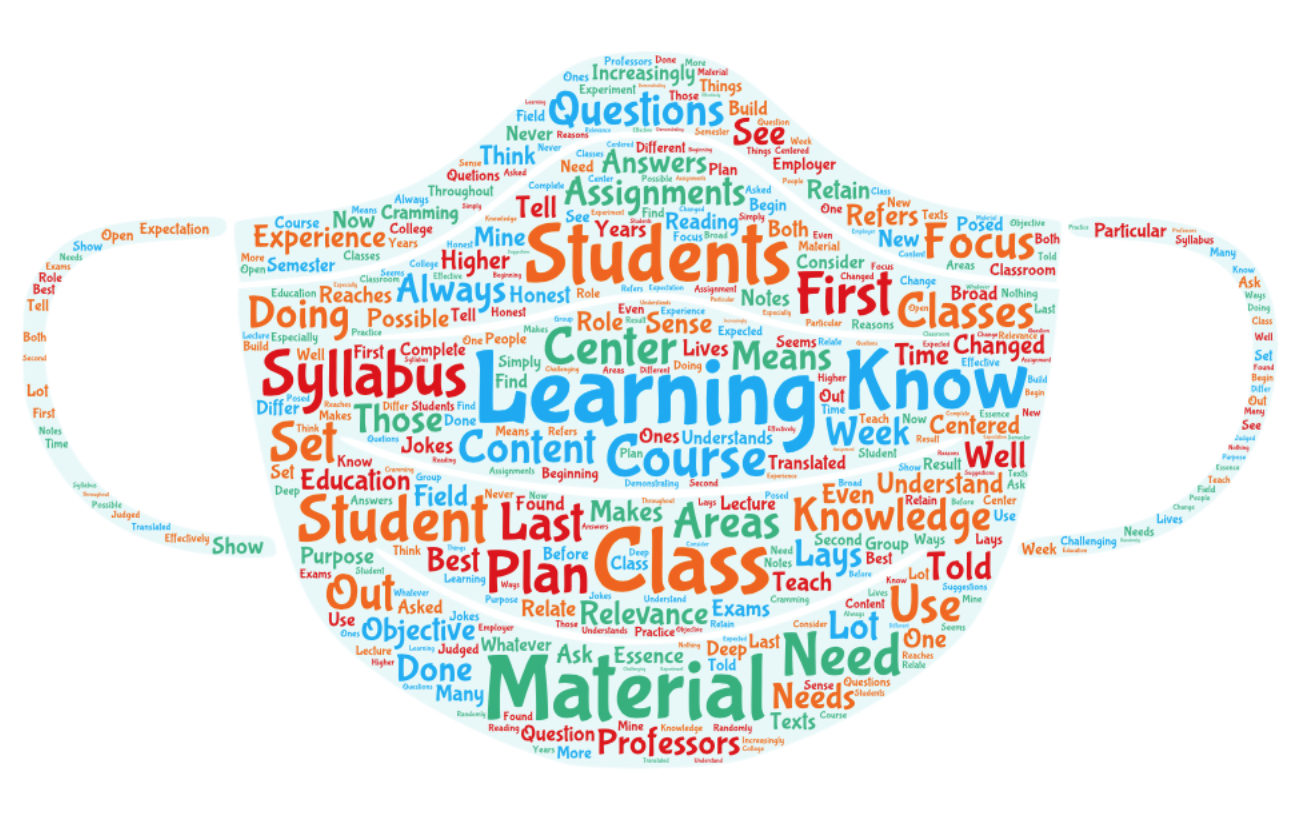

|
Most
professors and students would say that a course syllabus is a plan,
it lays out what the class will be doing, why they are doing it,
and when it needs to be done. However, increasingly higher education refers to "student-centered learning." Rather than cramming as much content into a course as possible, we're told that how well each student understands the material should be our focus. That seems to make sense. But this is the question i have: If students are at the center of the experience, that
is, if their learning is the purpose of the class, how does the
prof know what assignments and what reading best reaches that
particular class of students throughout the semester? In essence, in most classes student learning is not at the center of the class. Content is; that's why the syllabus is a plan, the objective is to get through all the material and see how much of it the students retain. i consider a syllabus complete NOT on the first day of class, rather on the last day. An expectation of my employer is that i have knowledge of the areas in which i teach. i think most of the time this is translated by the prof as: "I know the material and what the students need to know." To be honest, you don't have to know much about your field to do that; whatever you know is what they need. That's why many professors use the same texts, the same lecture notes, use the same assignments and exams, even tell the same jokes, year after year. If student learning is at the center of the class, their questions--not mine--should be the focus. My role, then, is to have both a deep and broad knowledge of my areas so that i can relate that knowledge to their questions and show them the relevance of the material to their lives. Now, if i do that, i cannot have a set syllabus at the beginning, before i get to know each new group of people. What this means for you is this: First, i need to know your questions. In my experience, i have found that to be one of the most challenging things for a student. You are almost never asked and simply don't understand the relevance of your own questions in a college classroom since it seems to always be about answers. You aren't expected to ask quetions, especially those that differ from the ones posed in class. You are judged on your knowledge of the answers. Second, this means that nothing in the syllabus is set in stone until the last day of classes for your course. i begin with assignments and material but the material will be different for most classes, that is why i build the syllabus week-to-week. What about the assignments? Can those be changed? Of course, but not randomly and not for reasons such as whether you like this or that assignment. They are changed if we experiment and find more effective ways of learning the material. As a result, i am always open to suggestions for change but please understand that the objective is always: how much are we learning and how effectively are we demonstrating that learning? Through practice. |